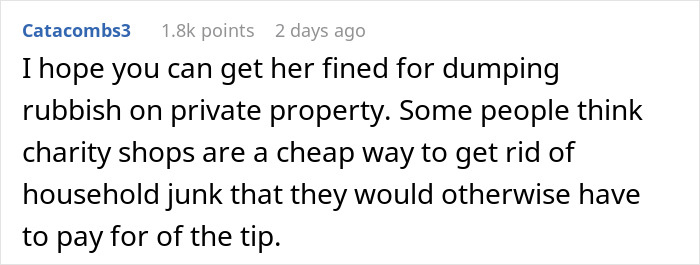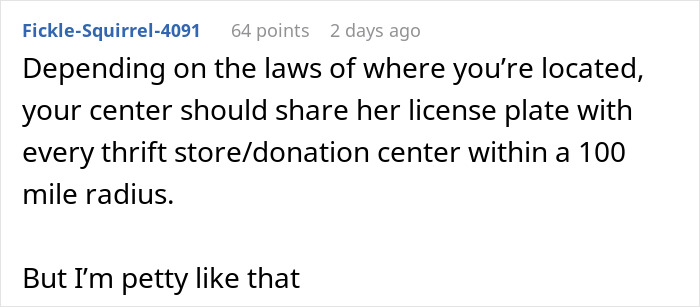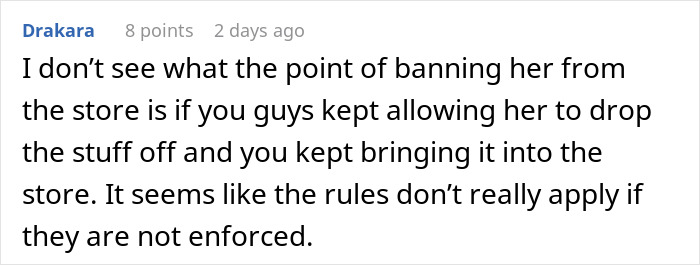There’s probably a special place in hell for people who treat customer service workers like dirt. That’s why it’s so satisfying when they finally get what’s coming to them.
One Goodwill employee shared their story on Reddit about a particularly rude ‘Karen’ who waltzed into their store, ignoring the rules, tossing trash at the staff, and making a scene. After several warnings, she got exactly what she deserved when the manager stepped in.
Keep reading to see how it all went down!
An entitled ‘Karen’ was giving the Goodwill employees a hard time and threw a full-blown tantrum

Image credits: Mike Mozart / flickr (not the actual photo)
After several warnings, she got exactly what she deserved when the manager stepped in

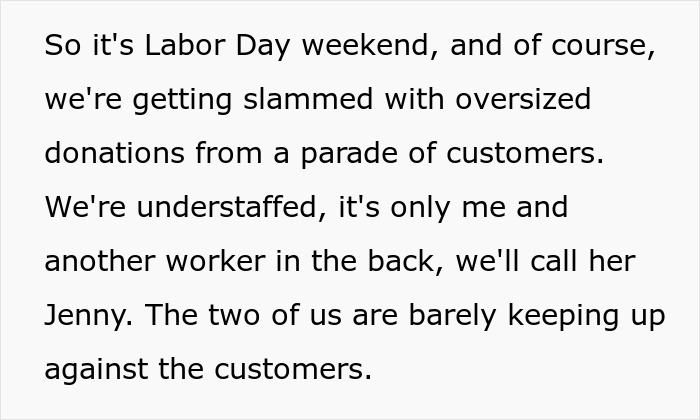
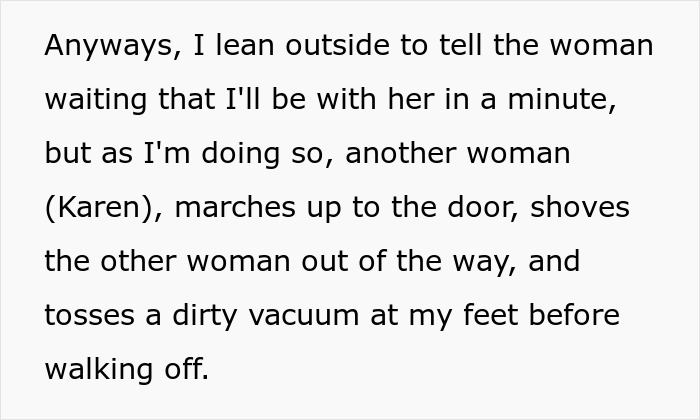
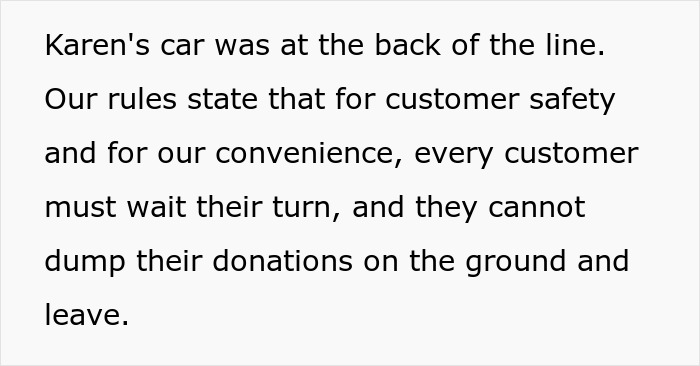
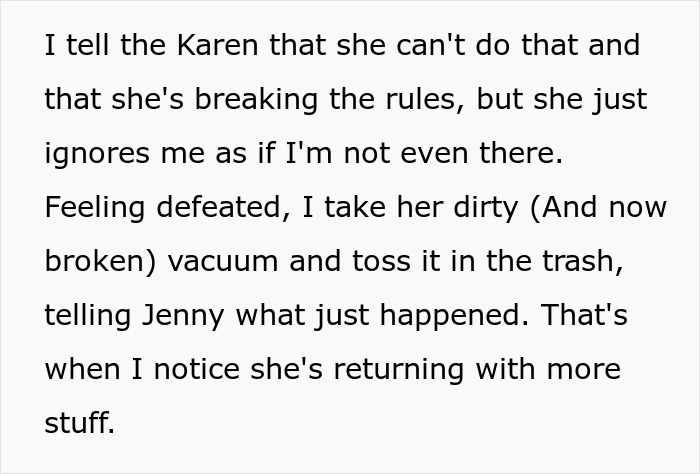

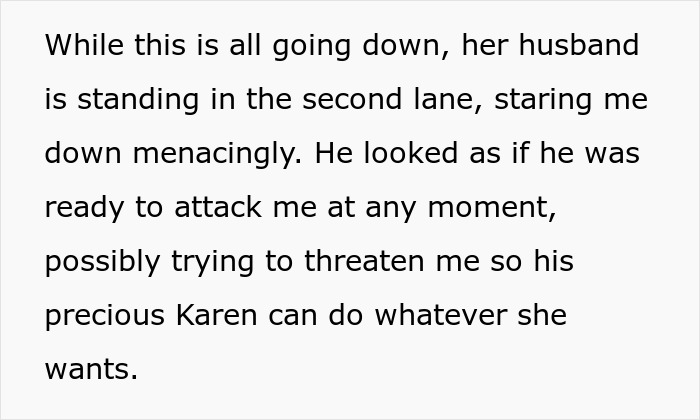
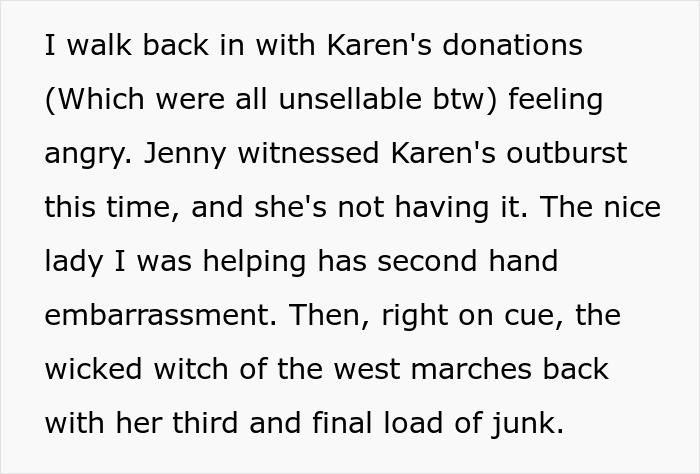
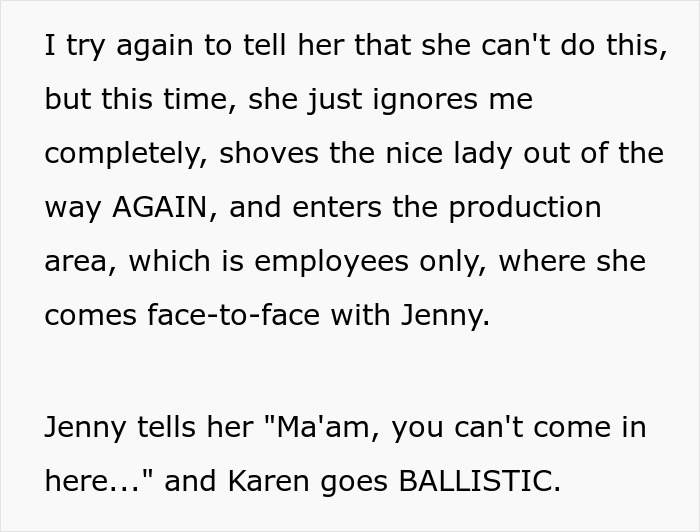
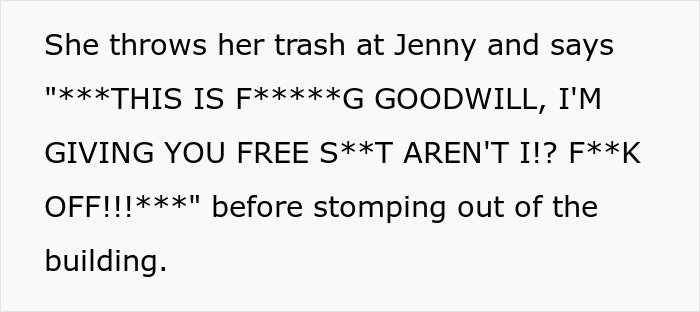
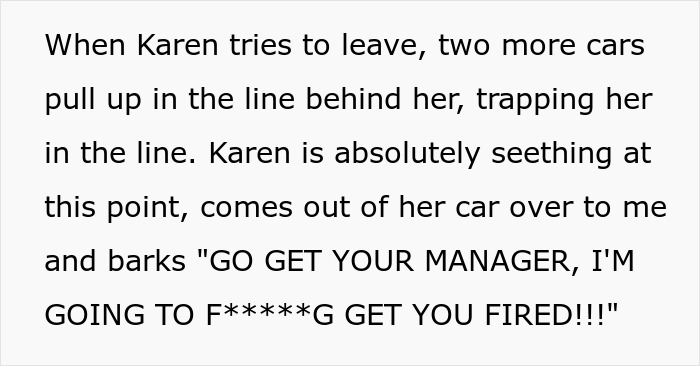

Image credits: master1305 / envato (not the actual photo)
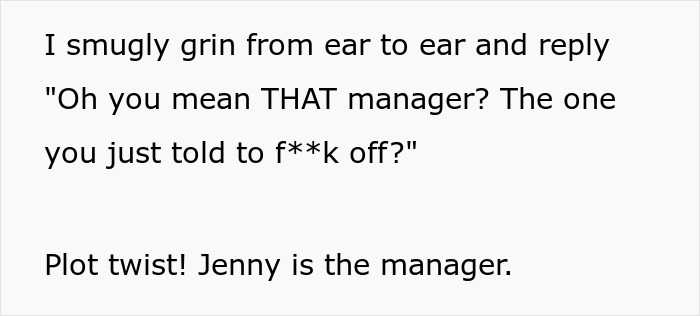


Image credits: Shadowbonnie5
Why people lose their temper at service workers

Image credits: Julia M Cameron / pexels (not the actual photo)
Whether we like to admit it or not, people can be rude to customer service workers. From blowing up at a barista during rush hour because the coffee isn’t hot enough, to getting frustrated with a flight attendant over a seat mix-up, or venting at someone on a hotline about slow internet, these moments are all too common.
Even the calmest of us may have lost our cool at some point. But according to service workers, these outbursts are becoming more frequent. Research from the Harvard Business Review shows that 73% of employees say it’s common for customers to behave badly, and 78% believe this kind of behavior is more common now than it was a few years ago.
So, why do people get so mad at customer service reps?
People are generally pretty inflexible, says Reena B. Patel, a San Diego-based psychologist and behavior analyst. When routines get disrupted, it can trigger anxiety and agitation. “When things are slightly off, or don’t happen the way we expect, it causes natural anxiety.”
Take a long line at the coffee shop, for instance. It might seem like a minor inconvenience, but it could throw off the rest of the day’s schedule. “People may not even realize that’s what they’re stressed about,” Patel explains. “But internally, that’s what’s happening. You walk into a restaurant expecting to be seated in 15 minutes, but 45 minutes later, your whole routine is thrown off, and stress starts to build.”
That stress can bubble over during everyday tasks like grabbing coffee or a quick bite to eat, which means service workers often end up in the line of fire. Suddenly, you’re snapping at a waitress who’s just trying to get you your pancakes.
But it’s not just about convenience. According to Melanie Morrison, a professor of psychology at the University of Saskatchewan, it’s also about power dynamics. “People working those jobs often don’t have much power,” she says, “so they become easier targets.”
This is where ‘scapegoat theory’ comes in – the idea that people look for someone to blame when things go wrong. Morrison explains that people are less likely to blow up at family members or colleagues. “It’s going to happen on the phone with a customer service worker, or at the discount store or McDonald’s,” she says.
Why? Because it’s easier to punch down. “Even though we shouldn’t think of one job as higher than another, people can fall into the trap of assuming they’re superior,” Patel says.
So, while the real frustration might be with a boss or partner, it’s the service worker who often bears the brunt of it – and they rarely get the apology.
People in the comments called out the woman’s rude behavior, with some even hoping she’d face legal consequences for it
